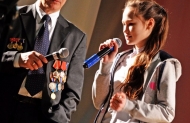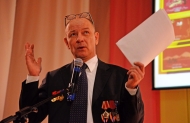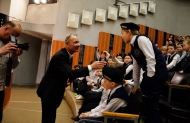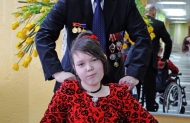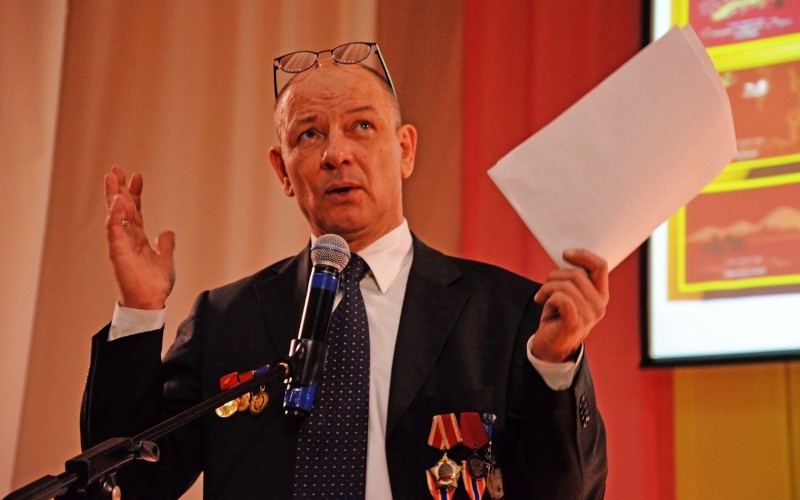
Photo: Alexei Samoletov, a military observer for the Zvezda TV channel, actor, director, screenwriter
In 2020, the Department of Happiness of the Eurasian Peoples’ Assembly and the EURASIA KIDS project launched the Letters of Happiness action. It was initiated by the Secretary General of the Eurasian Peoples' Assembly Andrey Belyaninov.
The proposal was simple - to send good wishes of happiness to each other in handwritten letters and postcards. The action was supported by people in different countries. One of the first letters of happiness was sent by the participants of the project EURASIA KIDS.
This year, not only letters of happiness will go on a trip to the countries of Eurasia, but also CDs with audio fairy tales of different peoples. This is the author's project of the military observer of the TV channel "Zvezda", actor, director, screenwriter Alexei Samoletov. "Tales of the Peoples of the World" is a collection of audio fairy tales that Alexei Samoletov collected from different parts of the world during military missions.
The purpose of the project is to tell that the values of all peoples in the world are the same and they are reflected in fairy tales. What is the difference between the fairy tales of India and the fairy tales of Afghanistan? Why does good always triumph over evil? Why do children and adults need fairy tales? Aleksey Samoletov notes that today it is very important to educate true values in children:
- In Afghanistan, the cameraman and I saw a boy who was sitting on the street and laid out cartridges from a Kalashnikov assault rifle. He moved his lips - he learned to count. For this child, there is nothing but the war around, firing from machine guns and the dead. His counting sticks were cartridges. Then, when he grows up, he will take a machine gun and keep track of the people he killed. In another city, we filmed his peer. He helped his father in the forge - inflated furs, forged horseshoes and bicycle wheels. And most importantly - this boy learned to count by the number of hammer blows, by the details that he made, and not by the people killed.
And in our story, we collided these two stories of life in one country. One learns to count, then to know how many he killed. Another - to know how many horseshoes he made, - says Alexei Samoletov.
The tales of different peoples are very similar, the military journalist notes. Very often the same plots and characters are traced. And this means that the fairy tale "goes" around the world, shares wisdom. Today it is very important to read fairy tales to children aloud or listen to them with the whole family.
Kirill Chirkov



